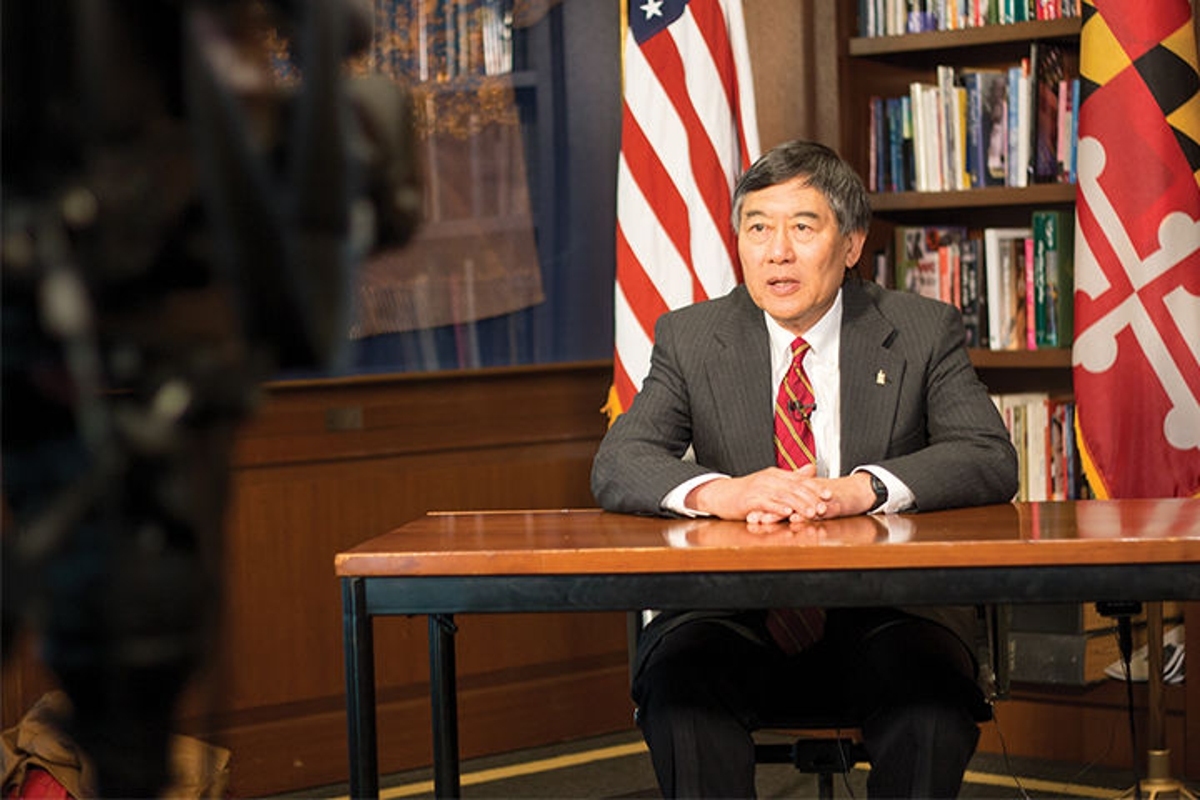Last November, 25 student groups at the University of Maryland came together as ProtectUMD to create a list of demands aimed at serving marginalized students. At a time when legitimate fear permeated our campus, students took swift, collaborative action to protect each other.
Their 64 demands for the school administration included mental health support for people of color, more funding for multicultural student organizations, queer diversity training, safe prayer areas and protection of undocumented students among other steps toward increased safety and understanding. The unity of these students and the comprehensive nature of their demands represented active citizenship that should have made their university administration proud.
Instead, two months later, university President Wallace Loh responded with an email that was both inadequate and dismissive. The email starts, “We begin this new semester as a rift grows in our nation. An ‘us-vs.-them’ mind set prevails. We talk more about our differences than about our common ground.” Already Loh has mischaracterized the situation. The most pressing issue in our nation, and on our campus, is not that we talk too much about our differences; it is that some people are under attack for theirs. ProtectUMD is not looking for “common ground,” they are looking for safety. In addition, Loh continually put the word “demand” in quotation marks, undermining the legitimacy of these concerns. This was insulting, and it is action like this that makes his request for “debate with respect” so hypocritical.
The review of the demands brought three responses. First, he says “Many ‘demands’ call for actions that have been undertaken already or are set to be undertaken.” He lists only one. Second, he states some demands will require approval by academic departments and the University Senate, a fact ProtectUMD was surely aware of already. He lists none. Third, he says “there are ‘demands’ that should not — and will not — be implemented because they are unlawful, or impractical, or unnecessary.” The three examples of this are what he views as restrictions on freedom of speech, dedicating prayer rooms in every building and declaring UMD a sanctuary campus.
These few points are the extent to which Loh acknowledges the demands at all. Out of 64, he chose to respond to a handful, and dismiss them. In doing so he demonstrated a disturbing lack of concern for marginalized students.
The rest of the email uses vague rhetoric to say very little about what his administration will do. The language seems to avoid specificity in favor of generalizations about “different perspectives.” Though he does invite ProtectUMD to a discussion, he writes, “We want to focus on achieving common goals and advancing shared values instead of going over ‘demands,’ one by one.” He fails to realize that it is not possible to achieve “common goals” while ignoring the demands of the American Indian, black, Latinx, LGBTQIA+, Muslim, pro-Palestine and undocumented student communities. Any values that exclude the needs of these groups are not shared at all, they are oppressive.
In a statement, ProtectUMD promised its “existence will surpass the time any current student spends at UMD as [ProtectUMD aims] to make this space inclusive for all communities. As long as marginalized groups exist on this campus, ProtectUMD will fight for their rights.”
Hopefully, this fight will force the administration to demonstrate true understanding so we see fewer statements like “[w]e know there are members of our University community who feel disenfranchised and marginalized.” These groups don’t “feel” disenfranchised, they are disenfranchised. Maybe when Loh starts taking that seriously, we can discover actual unity.
Jack Lewis is a junior government and politics major. He can be reached at jlewis20@umd.edu.



